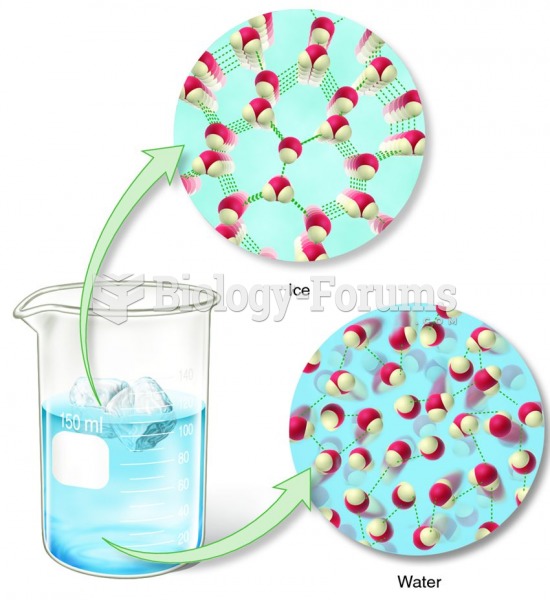|
|
|
The first successful kidney transplant was performed in 1954 and occurred in Boston. A kidney from an identical twin was transplanted into his dying brother's body and was not rejected because it did not appear foreign to his body.
In ancient Rome, many of the richer people in the population had lead-induced gout. The reason for this is unclear. Lead poisoning has also been linked to madness.
The first documented use of surgical anesthesia in the United States was in Connecticut in 1844.
More than 30% of American adults, and about 12% of children utilize health care approaches that were developed outside of conventional medicine.
Cancer has been around as long as humankind, but only in the second half of the twentieth century did the number of cancer cases explode.







